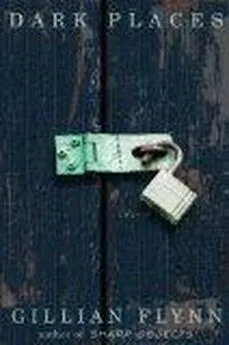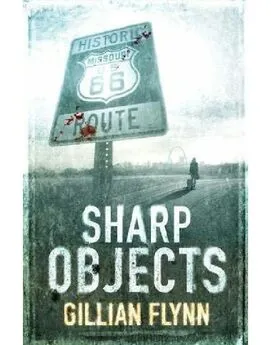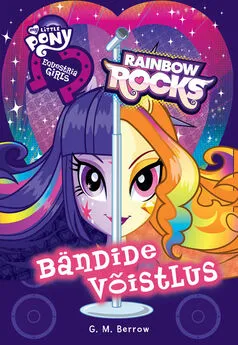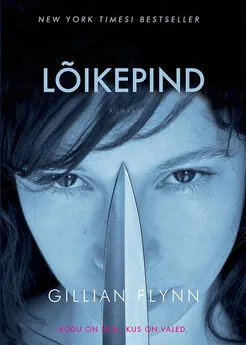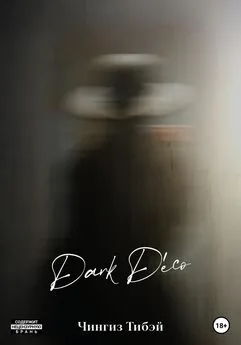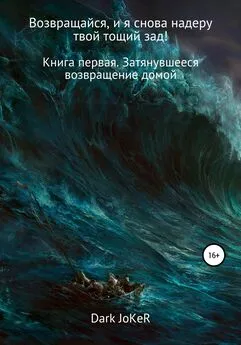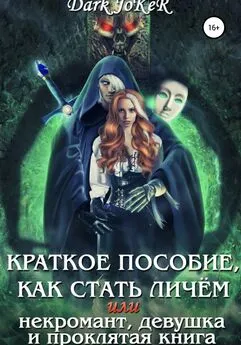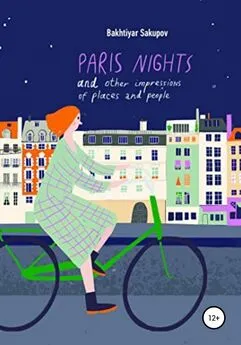Gillian Flynn - Dark Places
- Название:Dark Places
- Автор:
- Жанр:
- Издательство:неизвестно
- Год:неизвестен
- ISBN:нет данных
- Рейтинг:
- Избранное:Добавить в избранное
-
Отзывы:
-
Ваша оценка:
Gillian Flynn - Dark Places краткое содержание
Dark Places - читать онлайн бесплатно полную версию (весь текст целиком)
Интервал:
Закладка:
“Maybe one of us should have stayed home … in case,” Patty said.
“You’re not going anywhere by yourself while this is going on, and I don’t know where to go. This is the right thing. Michelle’s a big girl. I watched you when I was younger’n her.”
But that was back when people still did that, Patty thought. Back when people went out for a whole night and left the kids on their own and no one thought anything of it. In the ’50s and ’60s, out on that quiet old prairie where nothing ever happened. Now little girls weren’t supposed to ride bikes alone or go anywhere in groups of less than three. Patty had attended a party thrown by one of Diane’s work friends, like a Tupperware party, but with rape whistles and mace instead of wholesome plastic containers. She’d made a joke about what kind of lunatic would drive all the way out to Kinnakee to attack someone. A blond woman she’d just met looked up from her new pepper-spray keychain and said, “A friend of mine was raped once.” Patty had bought several cans of mace out of guilt.
“People think I’m a bad mother, that’s why this is happening.”
“No one thinks you’re a bad mother. You’re superwoman as far as I’m concerned: you keep the farm going, get four kids to school every day, and don’t drink a gallon of bourbon to do it.”
Patty immediately thought of the freezing cold morning two weeks ago, when she almost wept with exhaustion. Actually putting on clothes and driving the girls to school seemed an entirely remote possibility. So she let them all stay home and watch ten hours of soap operas and game shows with her. She made poor Ben ride his bike, shooed him out the door with a promise she’d petition again to get the school bus to come to them next year.
“I’m not a good mother.”
“Hush.”
THE MUEHLERS’ HOMEwas on a decent chunk of land, four hundred acres at least. The house was tiny and looked like a buttercup, a swipe of yellow against miles of green winter wheat and snow. It was blowing even harder than before now; the forecast said it would snow through the night, and then would come sudden springlike temperatures. That promise was wedged in her brain: sudden springlike temperatures.
They drove up the skinny, unwelcoming strip of road leading to the house, past a tiller sitting just inside the barn like an animal. Its hooked blades cast claw shadows on the ground. Diane made a sinus noise she always resorted to when she was uncomfortable, a fake clearing of the throat to fill the silence. Neither of them looked at the other as they got out of the car. Attentive black grackles perched in the trees, cawing continually, ill-natured, noisy birds. One of them flew past, a silvery trail of Christmas tinsel fluttering from its beak. But otherwise the place was immobile, no motors of any kind, no gates clanking shut, no TV within, just the silence of land packed under snow.
“Don’t see Ben’s bike,” was all Diane said as they banged the doorknocker.
“Could be around back.”
Ed answered the door. Jim, Ed, and Ben were all in the same grade, but the brothers weren’t twins, one of them had flunked at least once, maybe twice. She thought it was Ed. He goggled at her for a second, a short kid of only 5’4” or so, but with a man’s athletic build. He shoved his hands in his pockets and looked behind him.
“Well, hi, Mrs. Day.”
“Hi, Ed. Sorry to bother you on Christmas break.”
“No, no problem.”
“I’m looking for Ben—is he here? Have you seen him?”
“Be-en?” He said it in two syllables, like he was tickled at the idea. “Ah, no, we ain’t seen Ben in … well, I don’t think we seen him this whole year. Aside from school. He’s been hanging around with a different group now.”
“What group?” asked Diane, and Ed looked at her for the first time.
“Uh, we-ell …”
She could see Jim’s silhouette approaching the door, backlit by the picture window in the kitchen. He lumbered toward them, bigger and wider than his brother.
“Can we help you, Mrs. Day?” He nudged his face in, then his torso, slowly moving his brother to the side. The two of them effectively closed off the doorway. It made Patty want to crane her neck around them and peek inside.
“I was just asking Ed if you two’d seen Ben today, and he said you hadn’t been seeing much of him this whole school year.”
“Mmm, no. Wish you’d phoned, could have saved you some time.”
“We need to find him soon, you have any idea where we can find him, it’s sort of a family emergency,” Diane interrupted.
“Mmm, no,” said Jim again. “Wish we could help.”
“You can’t give us even a name of who he spends time with? Surely you must know that.”
Ed had swung to the background now, so he was calling from the shadow of the living room.
“Tell her to phone 1-800-Devils-R-Us!” he cackled.
“What?”
“Nothing.” Jim looked at the door knob in his hand, debating whether to start closing it.
“Jim, can you help us, please?” Patty murmured. “Please?”
The boy frowned, tapped the point of a cowboy boot against the floor like a ballerina, refused to raise his eyes. “He hangs out with, like, the Devil crowd.”
“What does that mean?”
“Some older guy heads it, I don’t know his name. They do a lot of drugs, peyote or whatever, and kill cows and sh-stuff. That’s just what I heard. They don’t go to our school, the kids in it. Except for Ben, I guess.”
“Well, you must know the name of someone,” Patty coaxed.
“I really don’t, Mrs. Day. We steer clear of that stuff. I’m sorry, we tried to stay friends with Ben, but. We go to church here, my parents, they run a tight ship. Er … I’m real sorry.”
He looked at the ground, and stopped talking, and Patty couldn’t think of anything else to ask.
“OK, Jim, thanks.”
He shut the door and before they could turn around, from inside the house they heard a bellow: Asshole, why’d you gotta say that! followed by a heavy bang against the wall.
Libby Day NOW
Back in the car, Lyle said only three words. “What a nightmare.” In reply, I said, mmmm . Krissi reminded me of me. Grasping and anxious, always bundling things aside for future use. That packet of chips. We scroungers always like little packets of food because people give them up with less hassle.
Lyle and I drove for twenty minutes without saying much, until finally he said, in his summing-up, newscaster voice, “So obviously she’s lying about Ben molesting her. I think she lied to her dad too. I think Lou Cates went nuts, killed your family, and then later, he found out she’d lied. He killed an innocent family for nothing. Hence, his own family disintegrates. Lou Cates disappears, starts drinking.”
“Hence?” I nipped at him.
“It’s a solid theory. Don’t you think?”
“I think you should not come on any more of these interviews. It’s embarrassing.”
“Libby, I’m financing this whole thing.”
“Well, you’re not helping it.”
“Sorry,” he said, and then we stopped talking. As the lights of Kansas City turned the sky a sick orange in the distance, Lyle said, without looking at me, “It’s a solid theory though, right?”
“Everything’s a theory, that’s why it’s a mystery!” I mimicked him. “Just a great mystery, Who Killed The Days?” I proclaimed, brightly. After a few minutes, I said grudgingly. “I think it’s an OK theory, I think we should look at Runner too.”
“Fine by me. Although I’m still going to track down Lou Cates.”
“Be my guest.”
I dropped him back outside Sarah’s, not offering to take him home, Lyle standing on the curb like a kid baffled that his parents can really bear leaving him at camp. I got home late and cranky and anxious to count my money. I’d made $1,000 so far from the Kill Club, with another $500 that Lyle owed me for Krissi, even though Krissi clearly would have talked to anybody. But even as I thought that, I knew it wasn’t true. None of those Kill Club misfits could have made that work with Krissi, I thought. She talked to me because we had the same chemicals in our blood: shame, anger, greed. Unjustified nostalgia.
I’d earned my money, I thought, resentful for no reason. Lyle seemed completely fine with paying me. That’s what I did, though— I had angry, defensive conversations in my head, got mad at things that hadn’t even happened yet. Yet.
I’d earned my money (now I felt calmer), and if I heard from Runner, if I talked to Runner, I’d earn a lot more money and be set for a good four months. If I lived very still.
Make that five months: by the time I got home, Lyle had already left a message saying some local Kill Creeps wanted to have a swap meet, buy some of my family’s “memorabilia.” Magda would host, if I was interested. Magda the cave troll who’d drawn Devil horns on my photo. Yes, Magda, I would love to be a guest in your home, where do you keep your silver again ?
I clicked off the answering machine, which I’d stolen from a roommate two moves ago. I thought of Krissi and knew her house was probably filled with other people’s crap too. I had a stolen answering machine, a nearly full set of pocketed restaurant silverware, and a half-dozen salt-and-pepper shakers, including the new pair, from Tim-Clark’s that I couldn’t manage to transfer from the hall table to the kitchen. In one corner of my living room, by my old TV set, is a box with more than a hundred small bottles of lotion I’ve swiped. I keep them because I like to look at the lotions all together, pink and purple and green. I know this would look crazy to anyone who came to my home, but no one does, and I like them too much to get rid of them. My mom’s hands were always rough and dry, she was constantly oiling them, to no avail. It was one of our favorite ways to tease her: “Oh mom don’t touch, you’re like an alligator!” The church we fitfully attended kept lotion in the women’s room that she said smelled like roses: we’d all take turns squirting and sniffing our hands, complimenting each other on our ladylike scent.
No phone call from Diane. She’d have gotten my message by now, and she hadn’t called. That seemed strange. Diane always made it easy for me to apologize. Even after this latest round of silent treatment— six years. Guess I should have autographed my book for her.
I turned around to the other set of boxes, the under-the-stairs boxes that had grown more ominous the more I let myself think about the murders. It’s just stuff, I told myself. It cannot hurt you.
When I was fourteen, I thought a lot about killing myself—it’s a hobby today, but at age fourteen it was a vocation. On a September morning, just after school started, I’d gotten Diane’s .44 Magnum and held it, babylike, in my lap for hours. What an indulgence it would be, to just blow off my head, all my mean spirits disappearing with a gun blast, like blowing a seedy dandelion apart. But I thought about Diane, and her coming home to my small torso and a red wall, and I couldn’t do it. It’s probably why I was so hateful to her, she kept me from what I wanted the most. I just couldn’t do it to her, though, so I made a bargain with myself: If I still feel this bad on February 1, I will kill myself. And it was just as bad on February 1, but again I made the bargain: If it’s this bad May 1, I’ll do it. And so on. I’m still here.
I looked at the boxes and made a quieter kind of bargain: If I can’t stand doing this anymore in twenty minutes, I’ll burn the whole lot.
Читать дальшеИнтервал:
Закладка:
